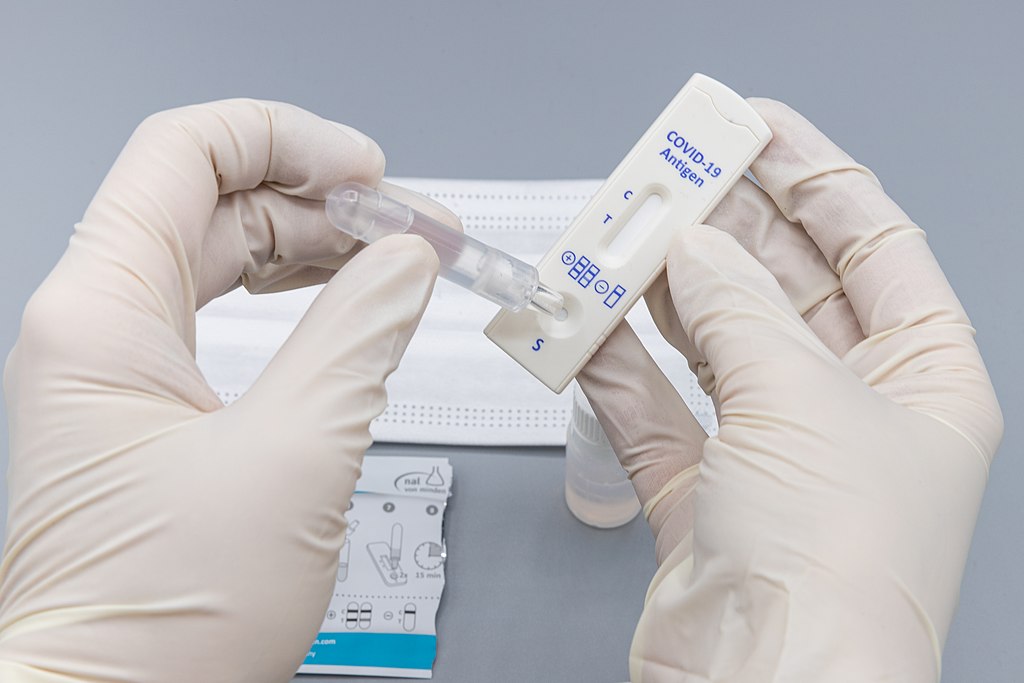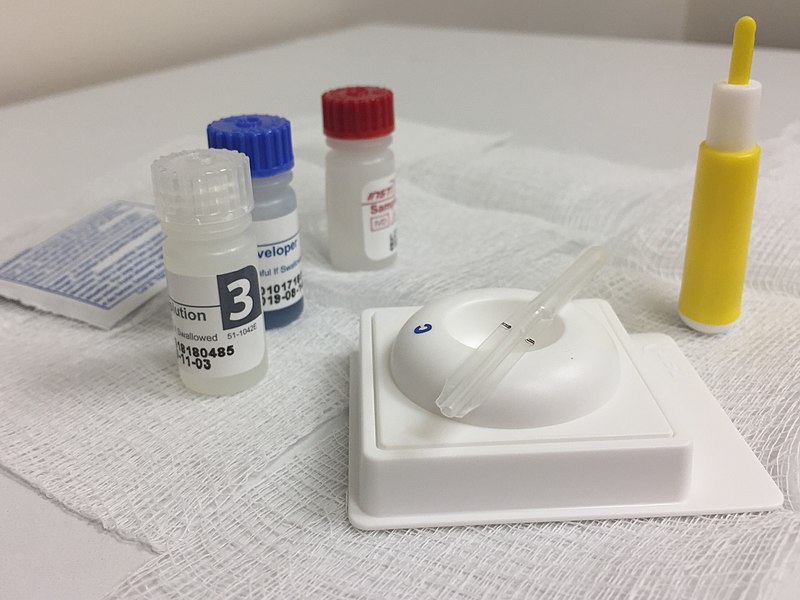The key difference between antigen and antibody test is that antigen test is a diagnostic test for pathogen detection that detects the presence or absence of a particular antigen of the pathogen while antibody test is a serological test for pathogen detection that detects the presence or absence of a particular antibody against the pathogen.
The detection of pathogens is the key to the prevention and identification of problems that are related to health and safety. The established methods for pathogen identification include immunology-based methods (detecting antigens or antibodies), culture and colony counting methods, PCR-based methods (detecting DNA), and biosensors. Antigen and antibody tests are two immunology-based methods for pathogen detection.
CONTENTS
1. Overview and Key Difference
2. What is Antigen Test
3. What is Antibody Test
4. Similarities – Antigen and Antibody Test
5. Antigen vs Antibody Test in Tabular Form
6. Summary – Antigen vs Antibody Test
What is Antigen Test?
An antigen test is a diagnostic test for pathogen detection through detecting the presence or absence of a particular antigen of the pathogen. Antigen test is a rapid test used to detect people currently infected with the pathogen. However, it shows better results if a person has had symptoms for a few days. Moreover, this test is designed to detect pieces of the proteins (antigens) that make up the pathogen. Antigen tests can be normally performed while the patient waits since it takes a few minutes to one hour to complete the test. But occasionally, samples are sent to the central laboratory.

Figure 01: Antigen Test
Since antigen test typically does not require a lot of special equipment, it is well suited to remote settings. Currently, antigen tests are used as a point of care testing for the detection of the SARS-CoV-2 virus in the COVID-19 disease. The other popular antigen tests that are used in clinical setups include rapid strep test, rapid influenza diagnostic test, and malaria antigen detection test.
What is Antibody Test?
An antibody test is a serological test that detects antibodies developed against the pathogen in the blood of the patient. It is one of the least commonly used testing methods for population-wise testing of virus that causes COVID-19 disease. Antibodies are molecules made by the immune system in response to the pathogen. A positive antibody test can indicate that the patient has been exposed to (or infected) the pathogen in the past.

Figure 02: Antibody Test
As antibody test typically requires drawing blood, the samples are almost exclusively taken by a health care professional and sent to laboratories for testing. Antibody tests are not best suited to determine if a person is currently infected. But, understanding who has been exposed to the virus in the past can be helpful in the testing procedure.
What are the Similarities Between Antigen and Antibody Test?
- Antigen and antibody tests are two immunology-based methods for pathogen detection.
- Both are conventional techniques.
- They are inexpensive compared to methods such as molecular techniques.
- Both tests are used currently for the detection of the SARS-CoV-2 virus in the COVID-19 disease
What is the Difference Between Antigen and Antibody Test?
Antigen test is a diagnostic test for pathogen detection through detecting the presence or absence of a particular antigen of the pathogen, while an antibody test is a serological test for pathogen detection through detecting the presence or absence of a particular antibody in the blood against the pathogen. Thus, this is the key difference between antigen and antibody test. Furthermore, an antigen test is categorized as a rapid test, while an antibody test is not categorized as a rapid test.
The below infographic presents the differences between antigen and antibody test in tabular form for side by side comparison.
Summary – Antigen vs Antibody Test
Antigen and antibody tests are two immunology-based methods for pathogen detection. Antigen test is a diagnostic test for pathogen detection through detecting the presence or absence of a particular antigen of the pathogen, while an antibody test is a serological test for pathogen detection through detecting the presence or absence of a particular antibody of the pathogen. So, this summarizes the difference between antigen and antibody test.
Reference:
1. “Antigen Test.” Unilabs.
2. “What Is Antibody (Serology) Testing.” UCLA Health.
Image Courtesy:
1. “Covid19 Antigen Rapid Test Diagnostic (50688135107)” By dronepicr – Covid19 Antigen Rapid Test Diagnostic (CC BY 2.0) via Commons Wikimedia
2. “HIV Antibody Testing Kit (48140260338)” By NIAID – HIV Antibody Testing Kit (CC BY 2.0) via Commons Wikimedia
ncG1vNJzZmivp6x7pbXFn5yrnZ6YsqOx07CcnqZemLyue9ahmK1lmah6tbTEZpuinpaav6a6wp5km52krLKmuoyapa2hl5q7bq3NnWSapqSer7Cw2GarnqukZA%3D%3D